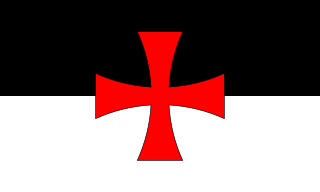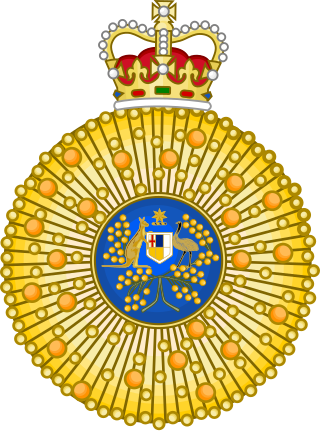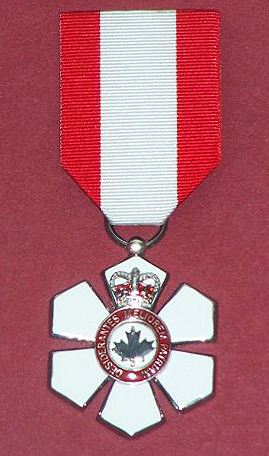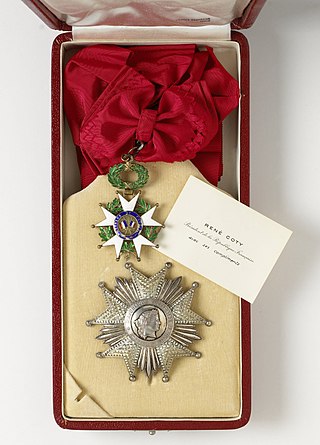
Actinopterygii, members of which are known as ray-finned fish or actinopterygians, is a class of bony fish that comprise over 50% of living vertebrate species. They are so called because of their lightly built fins made of webbings of skin supported by radially extended thin bony spines called lepidotrichia, as opposed to the bulkier, fleshy lobed fins of the sister class Sarcopterygii. Resembling folding fans, the actinopterygian fins can easily change shape and wetted area, providing superior thrust-to-weight ratios per movement compared to sarcopterygian and chondrichthyian fins. The fin rays attach directly to the proximal or basal skeletal elements, the radials, which represent the articulation between these fins and the internal skeleton.

The Poor Fellow-Soldiers of Christ and of the Temple of Solomon, mainly known as the Knights Templar, was a French military order of the Catholic faith, and one of the wealthiest and most popular military orders in Western Christianity. They were founded in 1118 to defend pilgrims on their way to Jerusalem, with their headquarters located there on the Temple Mount, and existed for nearly two centuries during the Middle Ages.

The Teutonic Order is a Catholic religious institution founded as a military society c. 1190 in Acre, Kingdom of Jerusalem. The Order of Brothers of the German House of Saint Mary in Jerusalem was formed to aid Christians on their pilgrimages to the Holy Land and to establish hospitals. Its members have commonly been known as the Teutonic Knights, having historically served as a crusading military order for supporting Catholic rule in the Holy Land and the Northern Crusades during the Middle Ages, as well as supplying military protection for Catholics in Eastern Europe.

Edward VII was King of the United Kingdom and the British Dominions, and Emperor of India, from 22 January 1901 until his death in 1910.

Franz Joseph I or Francis Joseph I was Emperor of Austria, King of Hungary, and the ruler of the other states of the Habsburg monarchy from 2 December 1848 until his death in 1916. In the early part of his reign, his realms and territories were referred to as the Austrian Empire, but were reconstituted as the dual monarchy of the Austro-Hungarian Empire in 1867. From 1 May 1850 to 24 August 1866, he was also president of the German Confederation.

The Franciscans are a group of related mendicant religious orders of the Catholic Church. Founded in 1209 by the Italian saint Francis of Assisi, these orders include three independent orders for men, an order for nuns known as the Order of Saint Clare, and the Third Order of Saint Francis open to male and female members. They adhere to the teachings and spiritual disciplines of the founder and of his main associates and followers, such as Clare of Assisi, Anthony of Padua, and Elizabeth of Hungary. Several smaller Protestant Franciscan orders or other groups have been established since the late 19th century as well, particularly in the Anglican and Lutheran traditions.

The Most Noble Order of the Garter is an order of chivalry founded by Edward III of England in 1348. The most senior order of knighthood in the British honours system, it is outranked in precedence only by the decorations of the Victoria Cross and the George Cross. The Order of the Garter is dedicated to the image and arms of Saint George, England's patron saint.

The Sovereign Military Order of Malta (SMOM), officially the Sovereign Military Hospitaller Order of Saint John of Jerusalem, of Rhodes and of Malta, and commonly known as the Order of Malta or the Knights of Malta, is a Catholic lay religious order, traditionally of a military, chivalric, and noble nature. Though it possesses no territory, the order is often considered a sovereign entity under international law.

The Order of Australia is an Australian honour that recognises Australian citizens and other persons for outstanding achievement and service. It was established on 14 February 1975 by Elizabeth II, Queen of Australia, on the advice of then prime minister Gough Whitlam. Before the establishment of the order, Australians could receive British honours, which continued to be issued in parallel until 1992.

The Order of Canada is a Canadian national order and the second-highest honour for merit in the system of orders, decorations, and medals of Canada, after the Order of Merit.

The National Order of the Legion of Honour, formerly the Imperial Order of the Legion of Honour, is the highest French order of merit, both military and civil, and currently comprises five classes. Established in 1802 by Napoleon Bonaparte, it has been retained by all later French governments and regimes.

Law & Order is an American police procedural and legal drama television series created by Dick Wolf and produced by Wolf Entertainment and Universal Television, launching the Law & Order franchise.
Law & Order: Special Victims Unit is an American police procedural crime drama television series created by Dick Wolf for NBC. The first spin-off of Law & Order, expanding it into the Law & Order franchise, it stars Mariska Hargitay as Detective Olivia Benson, now the commanding officer of the Special Victims Unit after originally having been Stabler's partner in a fictionalized version of the New York City Police Department, and Christopher Meloni as Detective Elliot Stabler. Law & Order: Special Victims Unit follows the detectives of the Special Victims Unit as they investigate and prosecute sexually based crimes. Some of the episodes are loosely based on real crimes that have received media attention.

The Most Excellent Order of the British Empire is a British order of chivalry, rewarding contributions to the arts and sciences, work with charitable and welfare organisations, and public service outside the civil service. It comprises five classes of awards across both civil and military divisions, the most senior two of which make the recipient either a knight if male or a dame if female. There is also the related British Empire Medal, whose recipients are affiliated with, but not members of, the order.

The Most Honourable Order of the Bath is a British order of chivalry founded by King George I on 18 May 1725. Recipients of the Order are usually senior military officers or senior civil servants, and the monarch awards it on the advice of His Majesty's Government. The name derives from an elaborate medieval ceremony for preparing a candidate to receive his knighthood, of which ritual bathing was an element. While not all knights went through such an elaborate ceremony, knights so created were known as "knights of the Bath".

The Most Distinguished Order of Saint Michael and Saint George is a British order of chivalry founded on 28 April 1818 by George, Prince of Wales, while he was acting as prince regent for his father, King George III. It is named in honour of two military saints, Michael and George.

The Royal Victorian Order is a dynastic order of knighthood established in 1896 by Queen Victoria. It recognises distinguished personal service to the monarch, members of the royal family, or to any viceroy or senior representative of the monarch. The present monarch, King Charles III, is the sovereign of the order. The order's motto is Victoria. The order's official day is 20 June. The order's chapel is the Savoy Chapel in London.

The Order of Knights of the Hospital of Saint John of Jerusalem, commonly known as the Knights Hospitaller, is a Catholic military order. It was founded in the crusader Kingdom of Jerusalem in the 12th century and had headquarters there until 1291, thereafter being based in Kolossi Castle in Cyprus (1302–1310), the island of Rhodes (1310–1522), Malta (1530–1798), and Saint Petersburg (1799–1801).

The Illuminati is a name given to several groups, both real and fictitious. Historically, the name usually refers to the Bavarian Illuminati, an Enlightenment-era secret society founded on 1 May 1776 in the Electorate of Bavaria. The society's stated goals were to oppose superstition, obscurantism, religious influence over public life, and abuses of state power. "The order of the day," they wrote in their general statutes, "is to put an end to the machinations of the purveyors of injustice, to control them without dominating them." The Illuminati—along with Freemasonry and other secret societies—were outlawed through edict by Charles Theodore, Elector of Bavaria, with the encouragement of the Catholic Church, in 1784, 1785, 1787 and 1790. During subsequent years, the group was generally vilified by conservative and religious critics who claimed that the Illuminati continued underground and were responsible for the French Revolution.

The Amish, formally the Old Order Amish, are a group of traditionalist Anabaptist Christian church fellowships with Swiss and Alsatian origins. As they maintain a degree of separation from surrounding populations, and hold their faith in common, the Amish have been described by certain scholars as an ethnoreligious group, combining features of an ethnicity and a Christian denomination. The Amish are closely related to Old Order Mennonites and Conservative Mennonites, denominations that are also a part of Anabaptist Christianity. The Amish are known for simple living, plain dress, Christian pacifism, and slowness to adopt many conveniences of modern technology, with a view neither to interrupt family time, nor replace face-to-face conversations whenever possible, and a view to maintain self-sufficiency. The Amish value rural life, manual labor, humility and Gelassenheit.



















